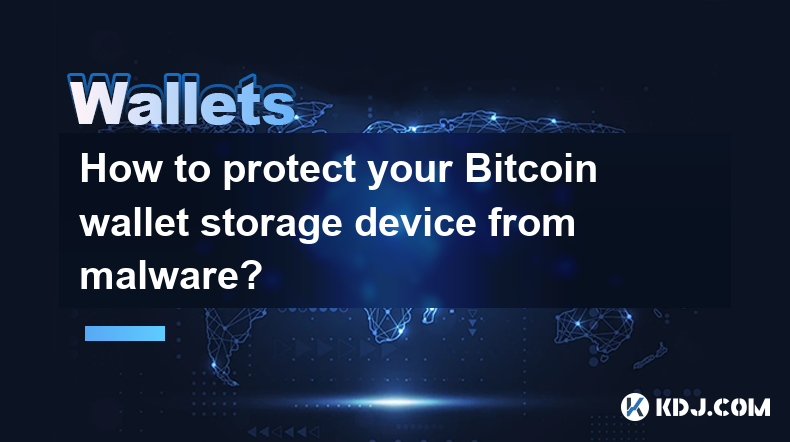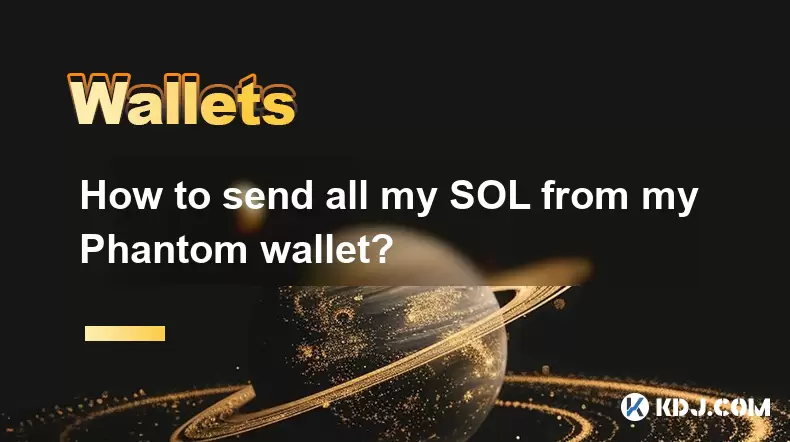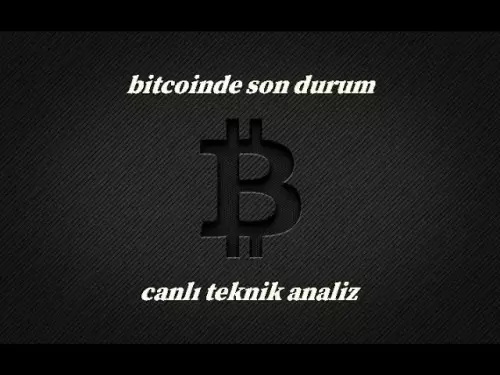-
 Bitcoin
Bitcoin $108,562.4295
0.46% -
 Ethereum
Ethereum $2,533.9553
1.52% -
 Tether USDt
Tether USDt $1.0002
-0.01% -
 XRP
XRP $2.2542
2.23% -
 BNB
BNB $662.4567
1.48% -
 Solana
Solana $151.4114
3.48% -
 USDC
USDC $0.9999
0.00% -
 TRON
TRON $0.2860
0.91% -
 Dogecoin
Dogecoin $0.1685
3.72% -
 Cardano
Cardano $0.5809
1.63% -
 Hyperliquid
Hyperliquid $39.2916
1.85% -
 Sui
Sui $2.8874
0.85% -
 Bitcoin Cash
Bitcoin Cash $496.5801
2.72% -
 Chainlink
Chainlink $13.3582
2.48% -
 UNUS SED LEO
UNUS SED LEO $9.0279
0.07% -
 Avalanche
Avalanche $18.0773
2.30% -
 Stellar
Stellar $0.2426
3.05% -
 Toncoin
Toncoin $2.9086
6.01% -
 Shiba Inu
Shiba Inu $0.0...01170
2.97% -
 Hedera
Hedera $0.1587
3.47% -
 Litecoin
Litecoin $87.4596
1.13% -
 Monero
Monero $317.0425
0.73% -
 Polkadot
Polkadot $3.3778
1.90% -
 Dai
Dai $0.9999
-0.01% -
 Ethena USDe
Ethena USDe $1.0001
-0.01% -
 Bitget Token
Bitget Token $4.4095
0.63% -
 Uniswap
Uniswap $7.3593
6.80% -
 Pepe
Pepe $0.0...09910
3.64% -
 Aave
Aave $274.7388
2.68% -
 Pi
Pi $0.4607
0.48%
How to protect your Bitcoin wallet storage device from malware?
Safeguarding Bitcoin requires a multi-layered approach, including using hardware wallets, strong passwords, updated antivirus software, and avoiding suspicious emails and websites to prevent malware attacks and protect your private keys.
Mar 22, 2025 at 05:29 am

How to Protect Your Bitcoin Wallet Storage Device from Malware?
Protecting your Bitcoin wallet storage device from malware is crucial to safeguarding your cryptocurrency holdings. Malware, encompassing viruses, Trojans, and spyware, can steal your private keys, leading to irreversible loss of your Bitcoin. This necessitates a multi-layered security approach. Neglecting security can result in significant financial losses, highlighting the importance of proactive measures.
Hardware Wallet Security:
Hardware wallets, offering offline storage, are the most secure option. However, even these devices require careful handling.
- Physical Security: Store your hardware wallet in a safe, tamper-evident container, away from potential thieves. Avoid leaving it unattended. Consider using a Faraday cage to block wireless signals that could potentially compromise the device.
- Firmware Updates: Regularly check for and install firmware updates from the manufacturer. These updates often patch security vulnerabilities that could be exploited by malware. Only download updates directly from the official website.
- Authentication: Use strong, unique PINs and passwords. Avoid reusing passwords across multiple accounts. Enable any two-factor authentication (2FA) options provided by your hardware wallet manufacturer.
Software Wallet Security:
Software wallets, while convenient, present a greater risk of malware infection.
- Operating System Security: Maintain a secure operating system. Regularly update your operating system and antivirus software. Avoid using public Wi-Fi networks for accessing your software wallet.
- Antivirus Software: Install and regularly update reputable antivirus software on your computer. Run full system scans frequently, especially after downloading files from untrusted sources.
- Secure Browsers: Use a secure and up-to-date web browser with strong security settings. Avoid clicking on suspicious links or downloading files from unknown websites. Consider using a privacy-focused browser.
- Firewall: Enable a firewall on your computer to prevent unauthorized access to your system. This acts as an additional layer of protection against malware intrusion.
- Software Updates: Keep your software wallet application updated to the latest version. Updates often include security patches that address vulnerabilities.
Identifying and Avoiding Malware:
Recognizing and avoiding malware is a key aspect of protecting your Bitcoin wallet.
- Suspicious Emails: Be wary of phishing emails that may attempt to trick you into revealing your private keys or downloading malware. Never click on links or download attachments from suspicious emails.
- Malicious Websites: Avoid visiting untrusted websites or clicking on suspicious links. Be cautious when entering your private keys or wallet information online.
- Software Downloads: Only download software from official websites or trusted app stores. Verify the authenticity of the software before installation. Check reviews and ratings.
- Regular Backups: Regularly back up your wallet's seed phrase or recovery key. Store this information securely, offline and in multiple locations. Do not store it digitally on your computer.
- Offline Storage: For long-term storage, consider using an offline storage method for your seed phrase, such as writing it down on paper and storing it in a secure location.
Operating System Specific Considerations:
Different operating systems present different vulnerabilities.
- Windows: Windows users should regularly update their operating system and antivirus software. Use Windows Defender or a reputable third-party antivirus program.
- macOS: macOS users should also keep their operating system and antivirus software updated. Consider using a reputable antivirus program, even though macOS is generally considered more secure than Windows.
- Linux: Linux is generally considered more secure than Windows and macOS, but it's still essential to keep your system updated and use an antivirus program.
Beyond Software and Hardware:
Beyond the technical aspects, security practices extend to personal habits.
- Strong Passwords: Use strong, unique passwords for all your accounts. Consider using a password manager to securely store and manage your passwords.
- Physical Security: Protect your computer and storage devices from physical theft. Use strong locks and secure storage solutions.
- Social Engineering: Be aware of social engineering tactics that may try to trick you into revealing your private keys or other sensitive information. Never share your private keys with anyone.
Frequently Asked Questions:
Q: Can a hardware wallet be infected with malware?
A: While less susceptible, hardware wallets are not entirely immune. Compromised computers used to interact with the hardware wallet could potentially introduce malware. Physical tampering is also a threat.
Q: What is a seed phrase, and why is it so important?
A: A seed phrase is a sequence of words that acts as a master key to your cryptocurrency wallet. Losing it means losing access to your funds permanently. Keep it secure and offline.
Q: What should I do if I suspect my wallet has been compromised?
A: Immediately disconnect your wallet from the internet. Change your passwords and PINs. Monitor your account activity closely. Report any suspicious activity to the relevant authorities and your cryptocurrency exchange.
Q: Are all antivirus programs created equal?
A: No. Some antivirus programs offer better protection than others. Research and choose a reputable antivirus program with a good track record. Regular updates are essential.
Q: How often should I update my software and hardware wallet firmware?
A: Check for updates regularly, as updates often address security vulnerabilities. The frequency varies depending on the manufacturer and the software/hardware in question. Always check for official announcements.
Disclaimer:info@kdj.com
The information provided is not trading advice. kdj.com does not assume any responsibility for any investments made based on the information provided in this article. Cryptocurrencies are highly volatile and it is highly recommended that you invest with caution after thorough research!
If you believe that the content used on this website infringes your copyright, please contact us immediately (info@kdj.com) and we will delete it promptly.
- Elon Musk, Andrew Yang, and Polymarket: What's the Buzz?
- 2025-07-07 10:30:12
- Lightchain AI's Bonus Round: The Final Chance Before Mainnet & Ecosystem Tools
- 2025-07-07 10:30:12
- TON Foundation, UAE Golden Visa, and Toncoin Staking: A New Chapter in Crypto Residency?
- 2025-07-07 10:50:12
- Altcoin Prices, Institutional Investors, and the Ethereum Rotation: What's the Deal?
- 2025-07-07 10:50:12
- TON Coin, Golden Visa, and UAE Denial: What's the Real Deal?
- 2025-07-07 10:55:12
- PEPE's Bullish Trend: Riding the 50% Gain Wave?
- 2025-07-07 10:55:12
Related knowledge

How to cancel a pending transaction in Phantom wallet?
Jul 03,2025 at 07:21pm
Understanding Pending Transactions in Phantom WalletA pending transaction in the Phantom wallet occurs when a user initiates a transfer or interaction with the Solana blockchain, but it hasn't yet been confirmed by the network. This can happen due to various reasons such as low transaction fees, network congestion, or incorrect gas settings. It's import...

How to see the estimated value of my tokens in Phantom wallet?
Jul 04,2025 at 12:21am
What is Phantom Wallet?Phantom wallet is one of the most popular cryptocurrency wallets designed for the Solana blockchain. It allows users to store, send, receive, and manage various tokens built on Solana, including SPL tokens and NFTs. The wallet offers a user-friendly interface, making it accessible for both beginners and advanced users in the crypt...

How to lock my Phantom wallet extension?
Jul 03,2025 at 11:14am
What Is the Phantom Wallet and Why Lock It?The Phantom wallet is a popular non-custodial cryptocurrency wallet designed for interacting with the Solana blockchain. Supporting both browser extensions and mobile apps, Phantom allows users to store, send, receive, and stake SOL tokens, as well as interact with decentralized applications (dApps). Securing y...

Does Phantom wallet offer two-factor authentication (2FA)?
Jul 03,2025 at 09:00am
Understanding Phantom Wallet and Its Security FeaturesPhantom wallet is a widely used non-custodial cryptocurrency wallet that supports the Solana blockchain. It allows users to store, send, receive, and interact with decentralized applications (dApps) seamlessly. As security is a top priority for any crypto wallet user, security features like two-facto...

How to send all my SOL from my Phantom wallet?
Jul 06,2025 at 10:00am
Preparing to Send SOL from Your Phantom WalletBefore initiating any transaction, it is crucial to ensure that your Phantom wallet is fully set up and connected to the correct network. Phantom supports multiple networks, but for sending SOL, you must be on the Solana blockchain. Confirm this by checking the network indicator in the top-right corner of th...

What is "rent" on Solana and how does it affect my Phantom wallet?
Jul 02,2025 at 08:35pm
Understanding 'Rent' on SolanaIn the context of Solana, the term 'rent' refers to a storage fee that users pay for maintaining data on the blockchain. Unlike Ethereum, where storage costs are paid once via gas fees during contract deployment, Solana implements a recurring cost model to ensure efficient usage of network resources. This means that any acc...

How to cancel a pending transaction in Phantom wallet?
Jul 03,2025 at 07:21pm
Understanding Pending Transactions in Phantom WalletA pending transaction in the Phantom wallet occurs when a user initiates a transfer or interaction with the Solana blockchain, but it hasn't yet been confirmed by the network. This can happen due to various reasons such as low transaction fees, network congestion, or incorrect gas settings. It's import...

How to see the estimated value of my tokens in Phantom wallet?
Jul 04,2025 at 12:21am
What is Phantom Wallet?Phantom wallet is one of the most popular cryptocurrency wallets designed for the Solana blockchain. It allows users to store, send, receive, and manage various tokens built on Solana, including SPL tokens and NFTs. The wallet offers a user-friendly interface, making it accessible for both beginners and advanced users in the crypt...

How to lock my Phantom wallet extension?
Jul 03,2025 at 11:14am
What Is the Phantom Wallet and Why Lock It?The Phantom wallet is a popular non-custodial cryptocurrency wallet designed for interacting with the Solana blockchain. Supporting both browser extensions and mobile apps, Phantom allows users to store, send, receive, and stake SOL tokens, as well as interact with decentralized applications (dApps). Securing y...

Does Phantom wallet offer two-factor authentication (2FA)?
Jul 03,2025 at 09:00am
Understanding Phantom Wallet and Its Security FeaturesPhantom wallet is a widely used non-custodial cryptocurrency wallet that supports the Solana blockchain. It allows users to store, send, receive, and interact with decentralized applications (dApps) seamlessly. As security is a top priority for any crypto wallet user, security features like two-facto...

How to send all my SOL from my Phantom wallet?
Jul 06,2025 at 10:00am
Preparing to Send SOL from Your Phantom WalletBefore initiating any transaction, it is crucial to ensure that your Phantom wallet is fully set up and connected to the correct network. Phantom supports multiple networks, but for sending SOL, you must be on the Solana blockchain. Confirm this by checking the network indicator in the top-right corner of th...

What is "rent" on Solana and how does it affect my Phantom wallet?
Jul 02,2025 at 08:35pm
Understanding 'Rent' on SolanaIn the context of Solana, the term 'rent' refers to a storage fee that users pay for maintaining data on the blockchain. Unlike Ethereum, where storage costs are paid once via gas fees during contract deployment, Solana implements a recurring cost model to ensure efficient usage of network resources. This means that any acc...
See all articles

























































































